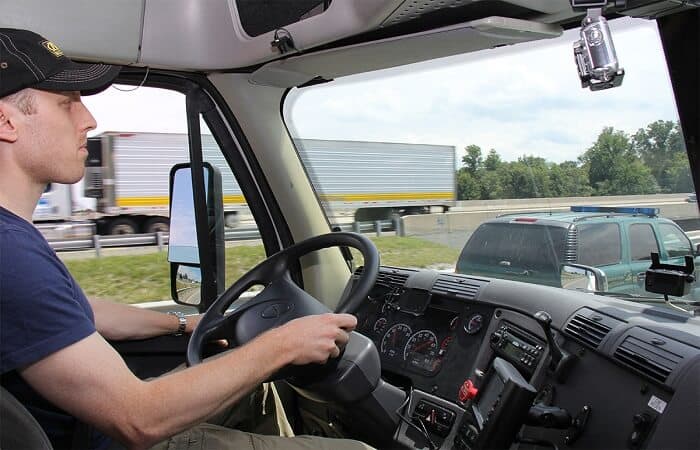ITASCA, Ill. — Trucking companies that prioritize safety through management practices and use of advanced technologies can greatly improve their performance outcomes, according to a new study from the National Surface Transportation Safety Center for Excellence (NSTSCE).
The research team worked with Travelers, a leading provider of commercial motor vehicle insurance, the National Safety Council and state trucking associations to identify nine carriers that experienced significant improvements in safety, including those once classified as “high risk” by the Federal Motor Carrier Safety Administration.
“There are common elements to fleet safety programs that can help virtually any carrier effectively protect their equipment, their cargo and, most importantly, their drivers,” said Chris Hayes, second vice president of transportation, risk control, at Travelers. “This study highlighted safety measures that proved most effective for the participants and can be incorporated by others to achieve positive results.”
Hayes said all the fleets studied have since improved their safety outcomes, meaning they have experienced decreases in the number and severity of crashes and improved safety scores. The researchers interviewed the carriers about their safety improvement strategies to identify best practices that other high-risk fleets can implement.
Major study findings include:
- Six out of nine carriers reported that building a strong safety culture increased safety outcomes. Carriers that had developed a well-rounded safety culture experienced a substantial reduction in FMCSA-reportable crashes. Management and driver buy-in to safety programs were reported to be an especially important factor. Several carriers also reported benefits from generating buy-in from other parts of the carrier’s organization, including the operations department and dispatch. Other best practices that helped build a strong safety culture included maintaining an open-door policy for drivers to discuss safety-related issues with management, and keeping a positive, collaborative environment to allow drivers to help each other and identify strategies for improvement, sharing carrier-wide safety indicators with managers and drivers, implementing improvements in hiring policies and training procedures, and modifying driver scheduling to reduce fatigue, having zero-tolerance policies for hours-of-service violations to proactively address safety concerns and informing drivers about the carrier’s safety culture during orientation and having all employees, not just drivers, participate in safety training and education
- Six out of nine carriers reported that adopting at least one advanced safety technology significantly improved safety outcomes. One carrier reported a 56% decrease in preventable, rear-end collisions after equipping its trucks with automatic emergency braking systems. Other technologies utilized include video-based onboard safety monitoring systems, lane-departure warnings, blind spot detection and stability control systems. Learn more about these technologies at MyCarDoesWhat.org.
- Of the 69 strategies reported, 59 were pre-crash countermeasures. Further, a large portion of the pre-crash countermeasures, or proactive actions taken by carriers, focused on the management culture and leadership buy-in on safety. This supports prior research that suggests a connection between a carrier’s organizational safety culture and actual safety performance. The carriers also reviewed crash data and the information gleaned from the advanced technology systems to proactively address areas in need of improvement.
- There was no single fix for improved safety performance. None of the carriers that significantly improved safety implemented only one change. Instead, all the carriers made comprehensive adjustments. These included changing management practices, implementing new technologies, and improving driver and manager training, hiring guidelines, scheduling and vehicle maintenance procedures.
“The results of this study indicate that a comprehensive approach to reducing crashes — which includes deploying advanced technology and building a strong organizational safety culture — can reduce fatalities and injuries on our roadways,” said Alex Epstein, NSC director of transportation safety. “We hope other carriers are able to learn from this research and take action to make their own fleets safer, the end result being safer roads for all and closer to our goal of zero fatalities.”
“Our findings were largely consistent in terms of the countermeasures the nine carriers viewed as influential factors in their improved safety records,” said Matthew Camden, the project’s principal investigator and senior research associate for VTTI’s Center for Truck and Bus Safety. “Overall, the carriers attributed their success not to one ‘single fix’ solution but rather the fact that they adopted a comprehensive approach to safety culture and practices within their companies, specifically the adoption of advanced safety technologies.”
The Trucker News Staff produces engaging content for not only TheTrucker.com, but also The Trucker Newspaper, which has been serving the trucking industry for more than 30 years. With a focus on drivers, the Trucker News Staff aims to provide relevant, objective content pertaining to the trucking segment of the transportation industry. The Trucker News Staff is based in Little Rock, Arkansas.







